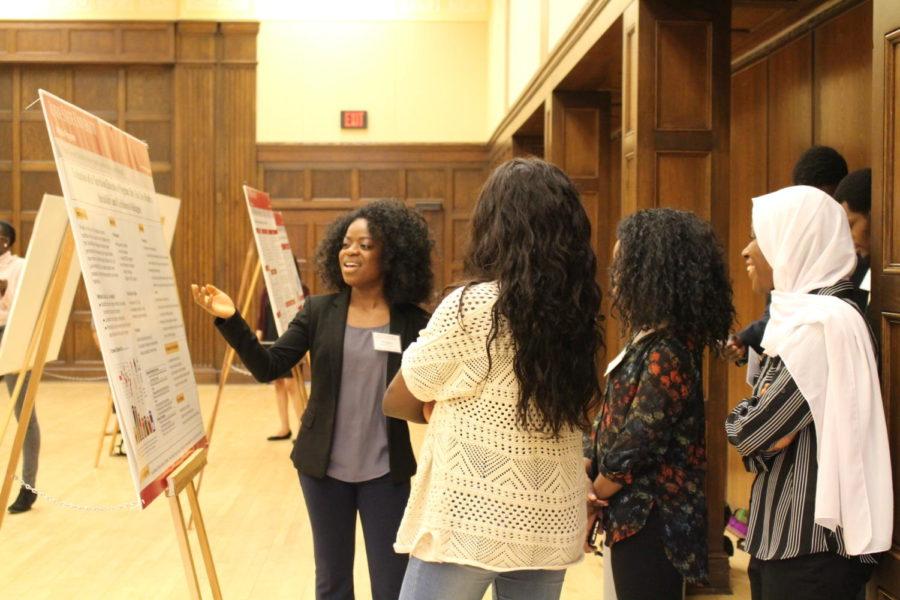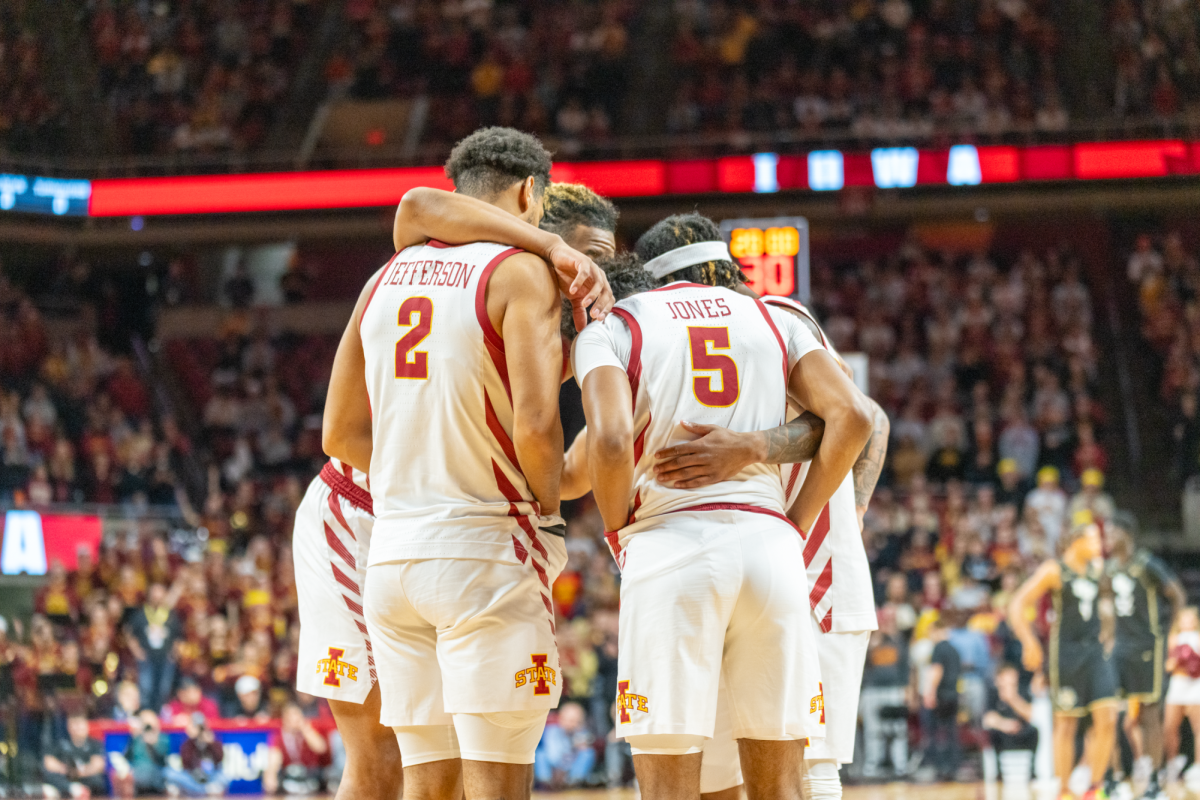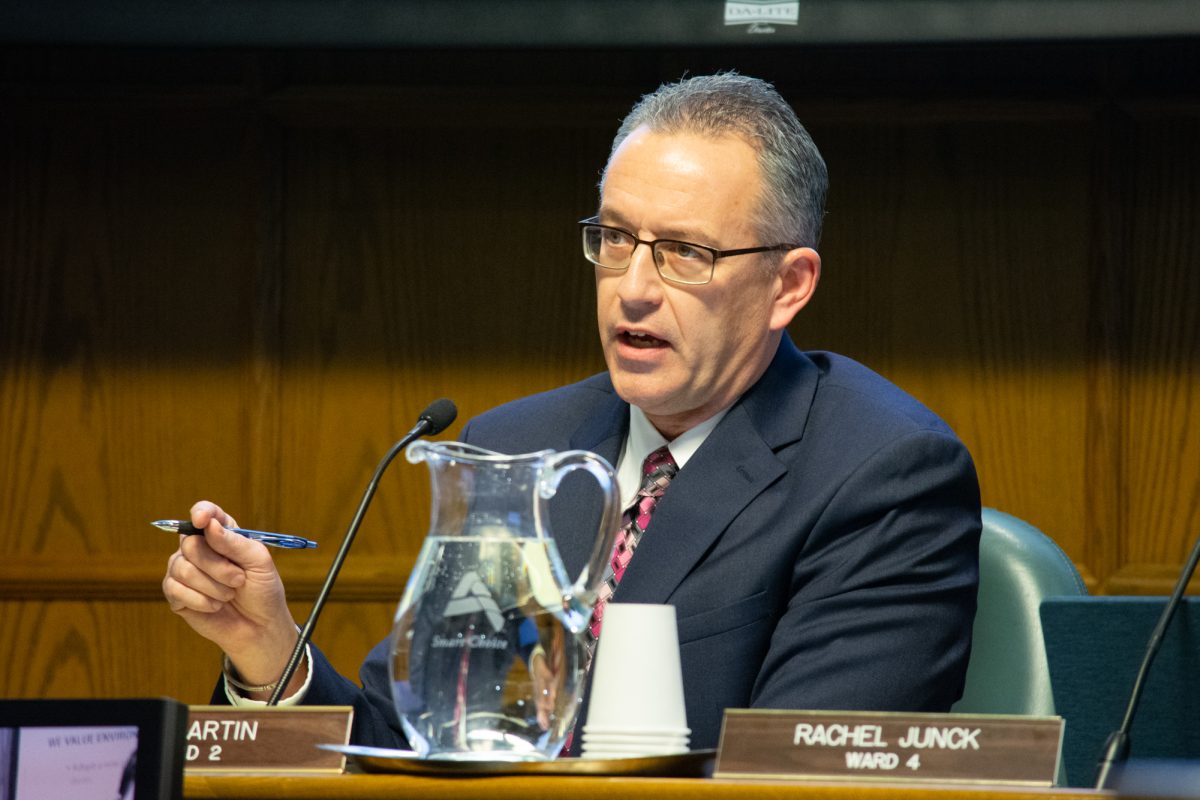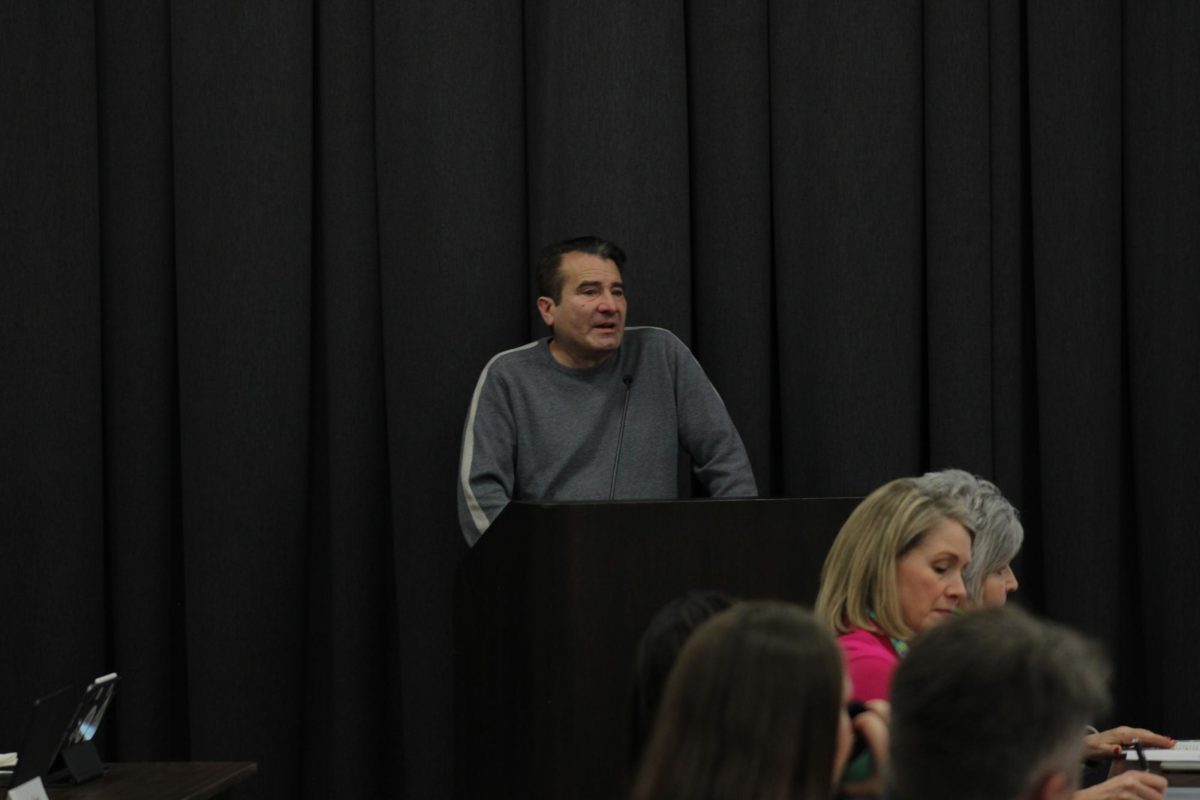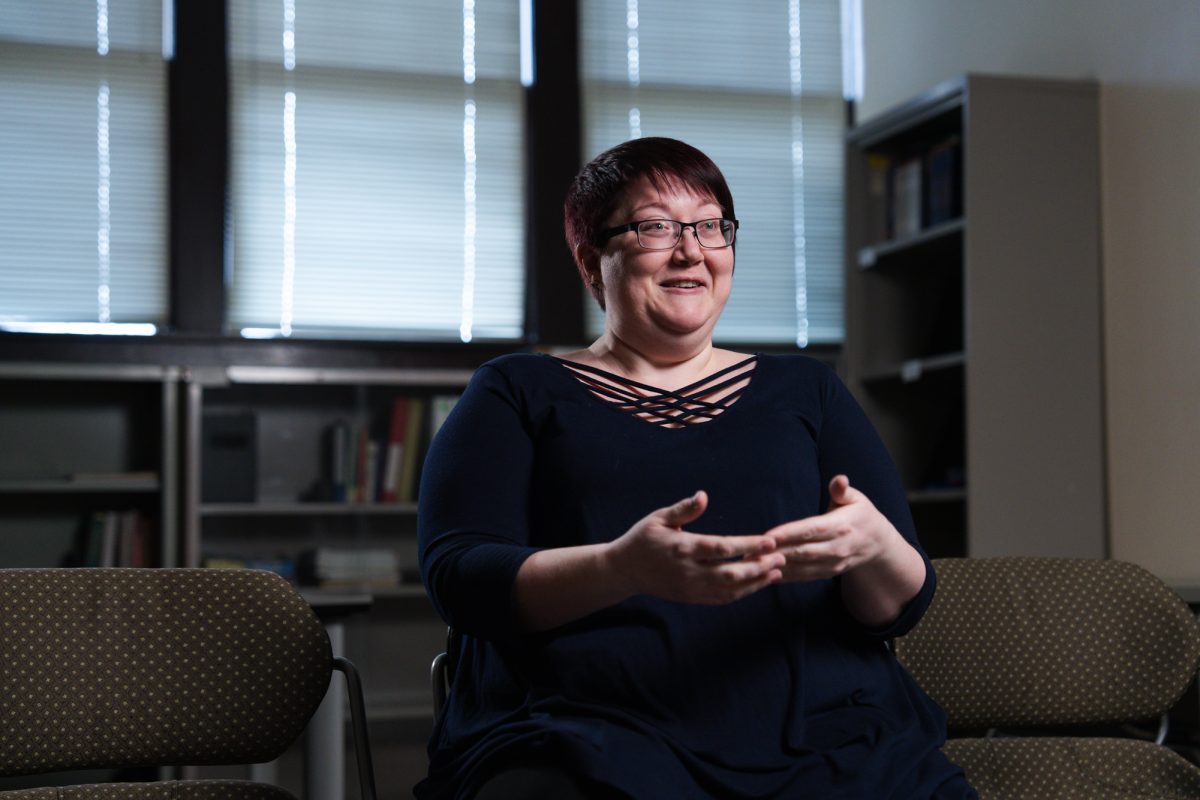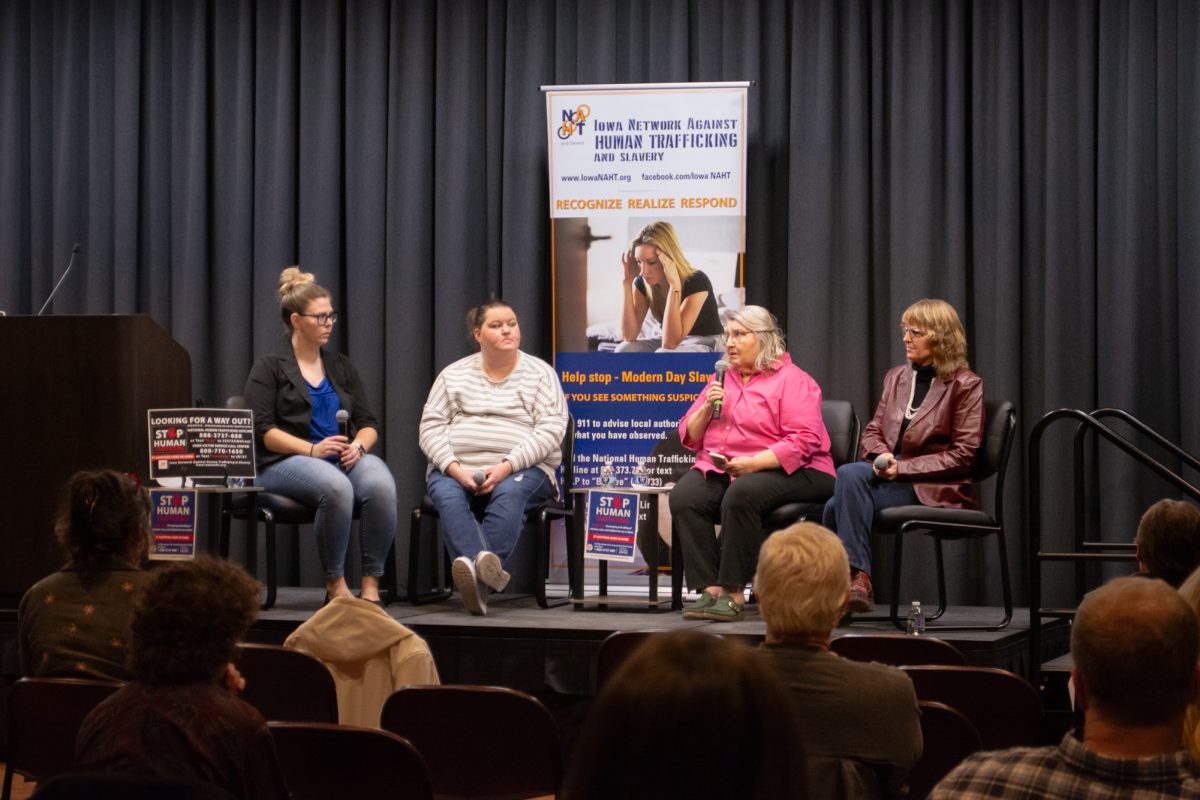15th annual McNair Research Symposium showcases academic success
April 17, 2018
Iowa State’s 15th annual McNair Research Symposium was a celebration and showcase of the success and achievements of McNair scholars in the 2017-2018 academic year, taking place in the Memorial Union on Tuesday, April 17.
The Ronald E. McNair Post-baccalaureate Achievement Program is a two year program for Iowa State students, meant to connect students from underrepresented backgrounds to faculty mentors, and prepare them for Ph.D. studies.
McNair students undertake research projects alongside a faculty mentor, as well as have the additional support of a graduate student mentor, and first year students are placed into research teams of their peers for a separate required research project as a part of the McNair curriculum.
Each year research teams are given a theme with which to base their study on. Graduate student wellness was the theme of this year’s research. Presentations from four first year McNair student groups were featured in three minute long presentations. These groups were named the Midwest Scientists, the McNair Breakfast Club, Team 6, and Team DOS.
Each of the teams conducted a study around imposter syndrome, which is defined as one feeling who has difficulty internalizing their successes.
The Midwest Scientists studied the relationship between social capital and imposter syndrome. Social capital is defined as having relationships and groups within their social space that offer support.
Team 6 studied the ways that first generation students of color and students of color as a whole were impacted by impostor syndrome.
Team DOS studied the impact that impostor syndrome has on students’ academic performance, as well as the relationship between gender identity and impostor syndrome.
The McNair Breakfast club studied outreach, resources, and recruitment in the college of engineering and its impact on the low numbers of graduate students of color within the college.
Individual McNair students and their faculty partners presented their research topics on posters in the south ballroom of the Memorial Union.
Julian Neely, a junior in journalism and mass communication, partnered with Jan Lauren Boyles, an assistant professor in the Greenlee School of Journalism and Communication, about the hashtag Black Joy and the ways it combats the media portrayal of black men as violent and aggressive, and the way the movement empowers black men and boys to smile, be charismatic, and the LGBTQIA+ inclusivity of the movement.
Mohamed Gesalla, a junior in electrical engineering, teamed up with Julie Dickerson, a professor in electrical and computer engineering, to conduct a study about the use of neural networks, a form of artificial intelligence, to more efficiently identify cancer in scans done on the human body.
Kpandi Lumeh, a senior in psychology, partnered with Carolyn Cutrona, a department chair and professor in psychology, to perform analyses on data regarding the impact of discrimination on African American women.
Three McNair scholars also spoke about their experiences in the McNair program. A’lece Moore, a senior in biology, Enrique Rubio-Delgado, a senior in construction engineering, and Nayelie Valenzuela, a senior in public relations, all spoke about their experiences in the McNair program at Iowa State.
Moore spoke about how her mentors helped inspire her and give her a network and professional connections in her chosen field of conservation ecology, and how her graduate mentors helped her know what she could expect in her transition to graduate school.
Rubio-Delgado spoke about three key points of his McNair experience: preparation, enthusiasm, and networking.
Rubio-Delgado said he felt more prepared for graduate school and helped him feel confident about what to expect. He said his faculty mentor helped him stay motivated throughout his time at Iowa State, and even encouraged him to travel to Mexico City to learn more about earthquakes after Mexico City had been struck by a large earthquake in 2017.
Rubio-Delgado also said that through McNair he had been connected to professors at Iowa State and other institutions to learn, and feels well prepared to apply for graduate school.
Valenzuela spoke about how McNair helped her find her true passion and career after she finishes school, and now wants to become a professor in communications, focusing on media and the relationship between underrepresented groups and mass media. Valenzuela credited the McNair staff and faculty, as well as her cohort as a continued source of support throughout her academic journey.
Thelma Harding, director of the McNair program at Iowa State, presented all of the second year students and graduating seniors: Jonathan Cerna, a graduating senior in dietetics; Mouhamad Diallo, senior in mechanical engineering; Thomata Doe, senior in nutritional sciences; Joseph Giroux, graduating senior in mechanical engineering; Josua Gonzales-Neal, graduating senior in software engineering; Andy Hinojo, senior in biology; Kpandi Lumeh, graduating senior in psychology; Valin Paige, graduating senior in biology; Enrique Rubio-Delgado, senior in civil engineering; Alexis Slade, senior in agricultural engineering; Jose Amaya-Cisneros, graduating senior in kinesiology; Hawa Conteh, senior in psychology; Sha’Kurra Evans, graduating senior; in sociology; Abraham Polonia-Suarez, senior in aerospace engineering; and Faleesia Willis, graduating senior in biology were all honored for their completion of the The Ronald E. McNair Postbaccalaureate Achievement Program.
Students and faculty were also honored for different outstanding achievements in this academic year within the The Ronald E. McNair Postbaccalaureate Achievement Program.
A’lece Moore, a senior in biology, and Abraham Polonia-Suarez, a senior in aerospace engineering, were the recipients of the outstanding first year scholar award. Sha’Kurra Evans received the scholar of the year award. Radhika Rao from the department of chemical and biological engineering was awarded for being the graduate student mentor of the year. Leonor Leandro, of the department of plant pathology and microbiology, was the recipient of the faculty mentor of the year award. Dr. Lequetia Ancar, multicultural liaison officer in the college of engineering, received the Thelma L Harding above and beyond award.
Bill Graves, dean of the graduate college, also spoke, offering his continued support of the McNair program and the joy he feels seeing McNair scholars continuing to blossom as academics. Graves offered support to all of the graduating McNair students as they move onto graduate school going forward.


